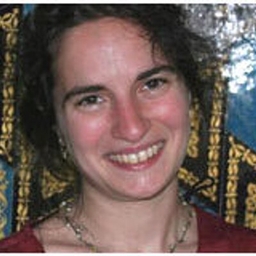
Monya Baker
Senior Editor at Issues in Science and Technology
I edit @ISSUESinST, searching for idea on how science can strengthen society, and how society should guide science
Articles
-
Feb 11, 2025 |
issues.org | Monya Baker |Asheley R. Landrum |Kimberly Quach
Vaccines, oil spills, genetic engineering, and stem cells—anywhere there’s science, there’s also misinformation. It muddies our ability to make good decisions, ranging from far-reaching ones like creating policy to simple ones like what to buy at the grocery store. Misinformation also undermines trust in scientific institutions and across society. The National Academies of Sciences, Engineering, and Medicine tasked an expert committee with addressing misinformation.
-
Oct 22, 2024 |
issues.org | Lisa A Bero |Monya Baker |Kimberly Quach
Check the end of any recent study, and there will be a list of study funders and disclosures about competing interests. It’s important to know about potential biases in research, but this kind of transparency was not always the norm. Understanding bias in research and helping policymakers use the most reliable evidence to guide their decisions is a science in itself.
-
Jul 9, 2024 |
issues.org | Lydia Contreras |Monya Baker |Kimberly Quach
Most people are familiar with DNA, but its cousin, RNA, has become widely known only recently. In 2020, of course, RNA was in the news all the time: the COVID-19 virus is made of RNA, as are the vaccines to combat it. Technologies based on RNA could lead to innovations in biology, medicine, agriculture, and beyond, but researchers have only scratched the surface of understanding what RNA is capable of.
-
May 7, 2024 |
issues.org | Tina Purnat |Elisabeth Wilhelm |Monya Baker
When tackling the problem of misinformation, people often think first of content and its accuracy. But contering misinformation by fact-checking every erroneous or misleading claim traps organizations in an endless game of whack-a-mole. A more effective approach may be to start by considering connections and communities. That is particularly important for public health, where different people are vulnerable in different ways.
-
Nov 28, 2023 |
issues.org | Stuart Buck |Monya Baker |Jay Lloyd
Stuart Buck has referred to himself as a venture capitalist for making science more efficient, reliable, and accountable. As vice president at the policy-focused philanthropy Arnold Ventures, he directed funds toward fledgling enterprises that are now major forces shaping scientific norms and infrastructure, including the Center for Open Science and Retraction Watch.
Try JournoFinder For Free
Search and contact over 1M+ journalist profiles, browse 100M+ articles, and unlock powerful PR tools.
Start Your 7-Day Free Trial →X (formerly Twitter)
- Followers
- 1K
- Tweets
- 1K
- DMs Open
- No

Theories of change, applied to open science. A thirty minute chat with @BrianNosek @ISSUESinST https://t.co/R9iKFZBmqd

RT @meharpist: How can replicating science be fun? @tedmiguel @fhoces et al explain how @I4Replication has made replicating experimen…

RT @ISSUESinST: US drug companies turn taxpayer-funded innovation into astronomical profits. @twhitfill and @MazzucatoM argue that the new…
